Rehabilitation
Rehabilitation
Explosive Ordnance survivors social support, including peer support from other amputees, and the presence of emotional support outside the family, including friends, neighbours, and other community members is very critical. There are cases of survivors with few social relationships, causing isolation, psychological distress, and depression. Therefore, we will stay connected to others to make a turning point in recovery for many to see other amputees leading productive, fulfilling lives. We greatly require physical and moral support of family members in order to achieve our intended goals.
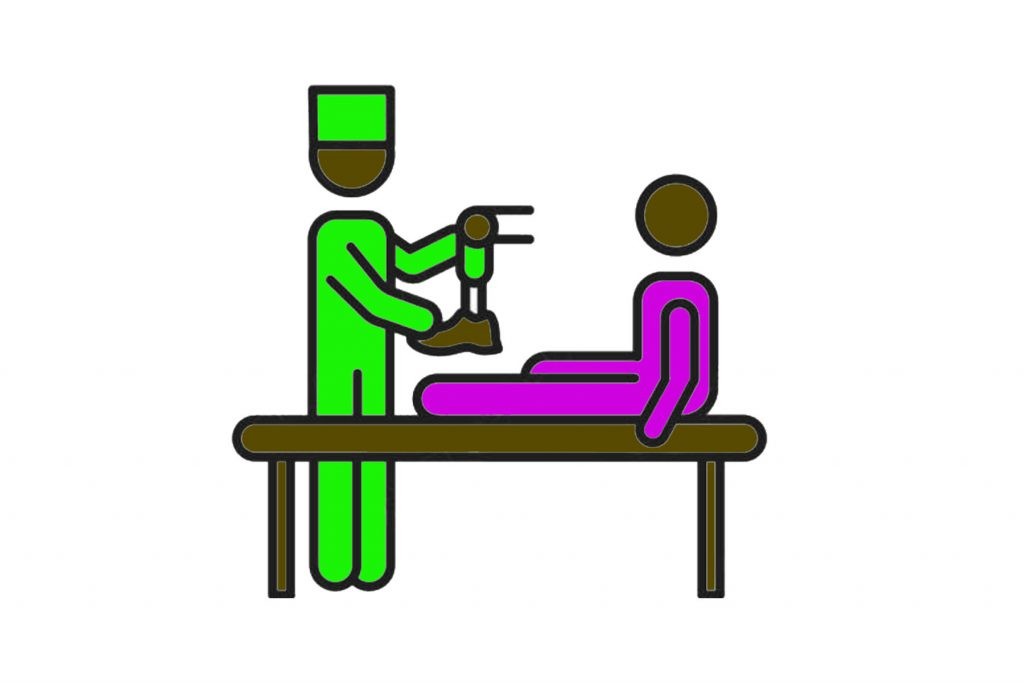
Medical Rehabilitation
Children who lost a family member as a result of a mine/Explosive Ordnance blast, or who were living in a family with an adult survivor, also faced considerable challenges from the loss or impairment of the care giver or the household breadwinner. Educational opportunities were lost due to the burden of school fees or the child’s need to work to support family income.
Pychotherapy
Explosive ordnance survivors are resigned to the limb loss; feeling depressed and bad about themselves and may recover psychologically from the traumatic accident move from pragmatic acceptance to what we call acceptance with resilience or struggle to recover to what we term acceptance with resignation.
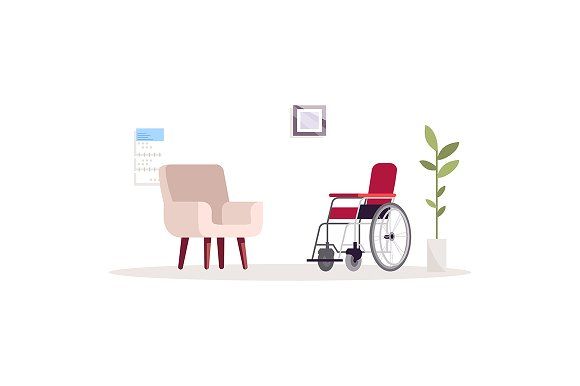
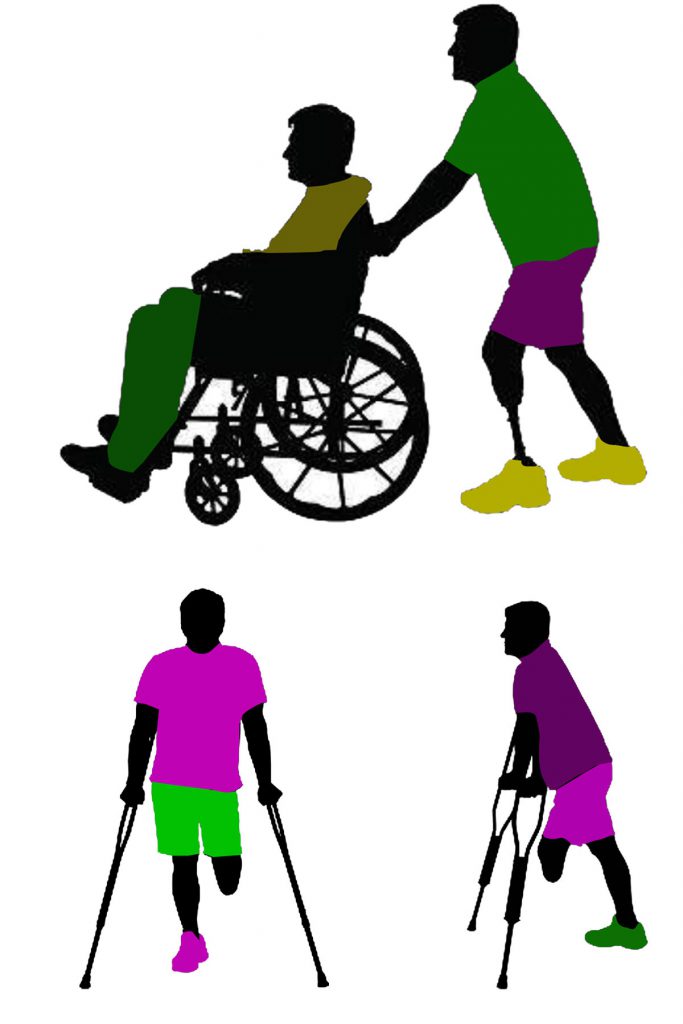
Assistive Device
Children who lost a family member as a result of a mine/Explosive Ordnance blast, or who were living in a family with an adult survivor, also faced considerable challenges from the loss or impairment of the care giver or the household breadwinner. Educational opportunities were lost due to the burden of school fees or the child’s need to work to support family income.
Survivors comfort in Life
An important component of an amputee’s rehabilitation is participation in an amputee support group, peer support, such as that received from an amputee support group, expands the resources available for coping with limb loss while educating amputees, family members and others.
We have a few active members with whom we still meet periodically to discuss our lives and fate. There are a few women and over 40 men amongst us who have exhibited something close to a ‘successful’ survivor who have overcome trauma and are experiencing physical and psychological health.
We all differ at the level of our success throughout our life course healing.
Although support groups provide an opportunity to identify and meet the special needs of the amputee and their family, landmine survivors groups in Uganda do not have much of a great united front that we can celebrate is doing something significant to uplift our situation. There is no available data available to track how many, where and what survivors are doing of the over 2500 registered cases in Uganda.

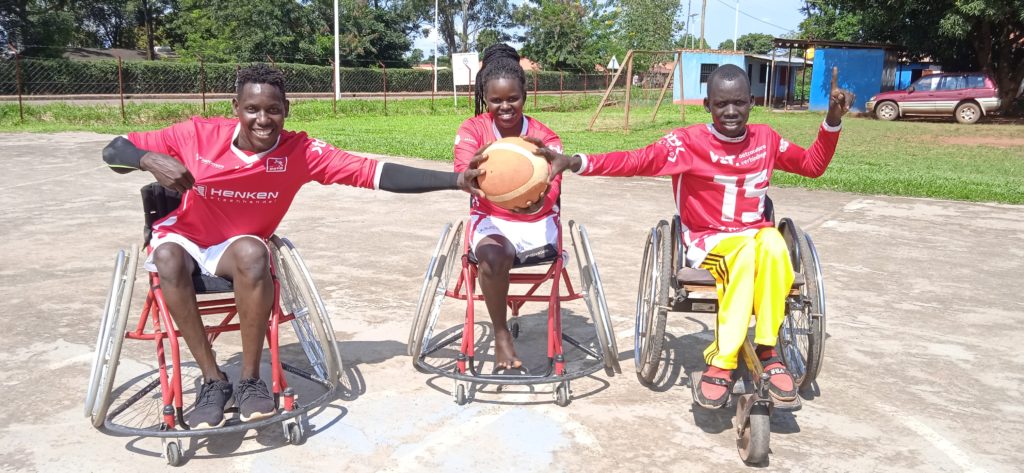
Suffering an amputation presents multiple problems for an individual, their family and friends. Psychological issues can be difficult to address and individuals can feel isolated leading to depression. Individuals following amputation at a low functional level often have to relearn how to perform daily activities with or without a prosthesis, and they tend to become more dependent on others, leading many amputees to experience decreased self-esteem. Others may return to a high functional level. Regardless, the rehabilitation care team must assess the functional and recreational goals of the patient to guide the treatment plan with the mission of creating an environment where there is no limit to what an amputee can accomplish.
Participation in varying activities has a profound effect on an amputee’s life. It has been shown that involvement in adaptive sports increases the quality of life for persons with disabilities by increasing self-esteem.
While not all persons with amputations will aspire to become elite athletes, those who participate in a sport and want to take their performance to the next level may find the maze of training and fitness information difficult to navigate. We were part of Uganda’s first Wheelchair Basketball team with two amputees male and female at the elite level playing Team Uganda East African Wheelchair Basketball Tournament, Kasarani 2019, Nairobi kenya.
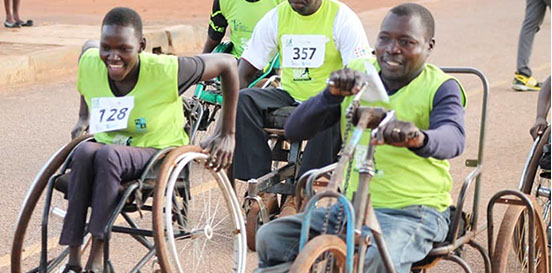
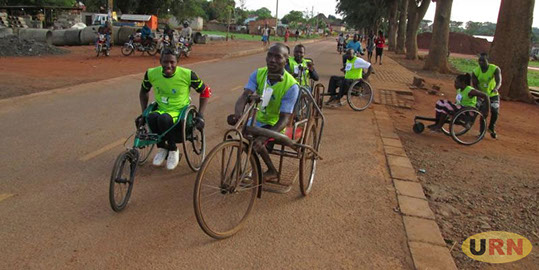
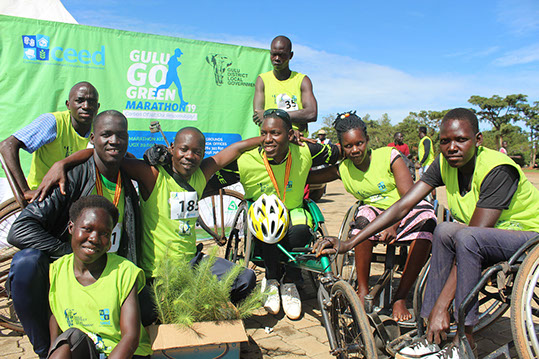
Gulu Go Green Marathon
Gulu Wheelchair Basketball Club participated in the Sunday April 28, 2019, Gulu Go Green Marathon to create awareness on Greening Gulu. In its third edition of the annual Gulu Go Green Conference for the 2019, CEED’s rallying theme is “Carbon Offset, Our Responsibility”. Our responsibility is to act now to avert the negative consequences of climate change and make Gulu city a Green City. Therefore, the Gulu Go Green Campaign is a community’s call to live in an environmentally friendly place in line with the city’s vision of a Transformed, Industrial, Hospitable and Sustainable City.
Amputees, Wheelchair users, crutches limpers, and all differently abled people show up to demonstrate the need and desire to green the universe once more.
Lagu Alex Wilson T47 (left amputee till Shoulder) emerged champion in the 5,000m male category. Ocira Richard and Lagu Alex Wilson were awarded Gold medals and tree seedlings of pine trees apiece as reward for topping the race.
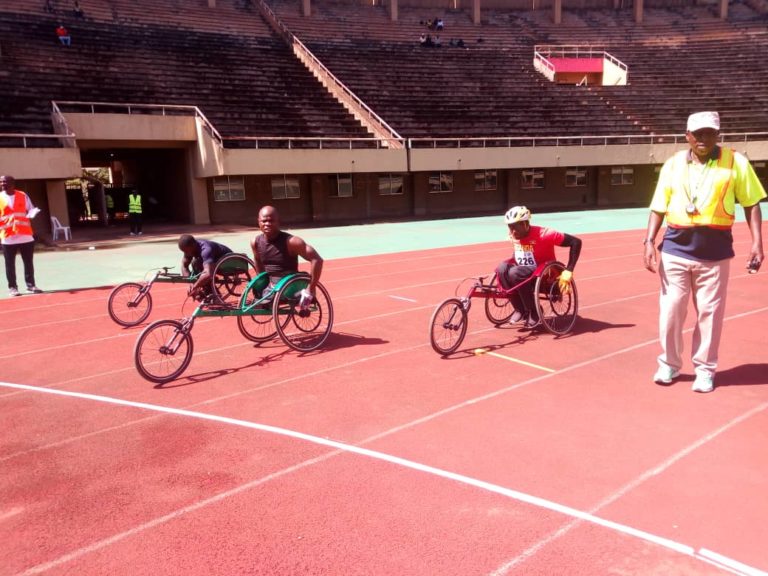
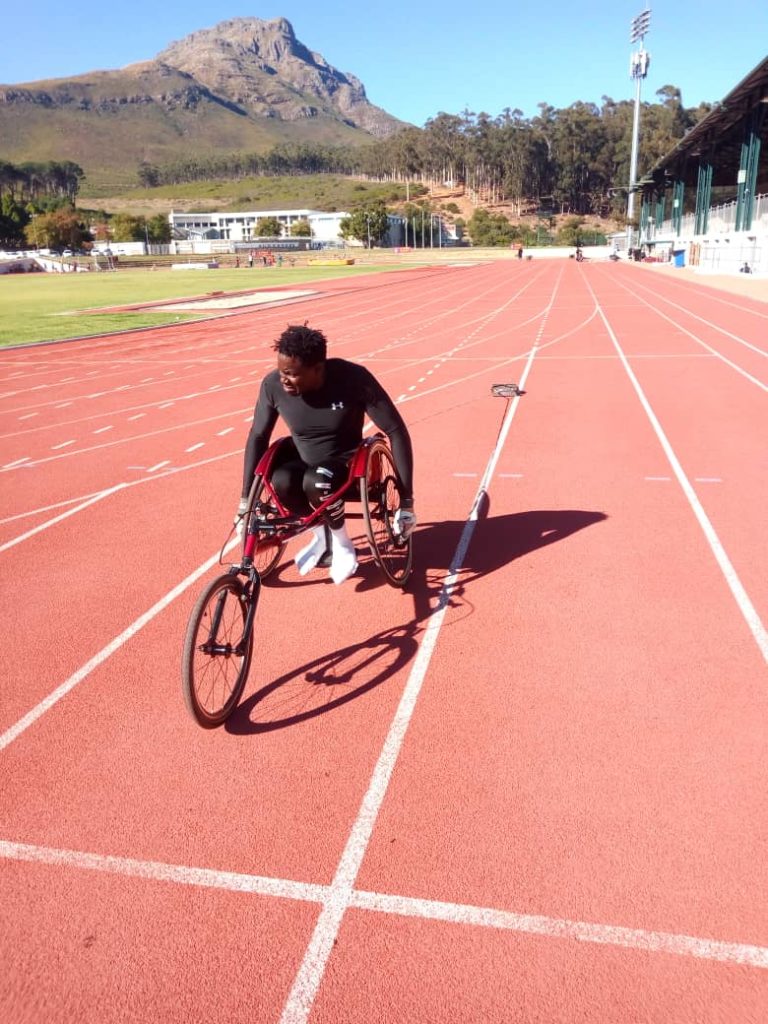
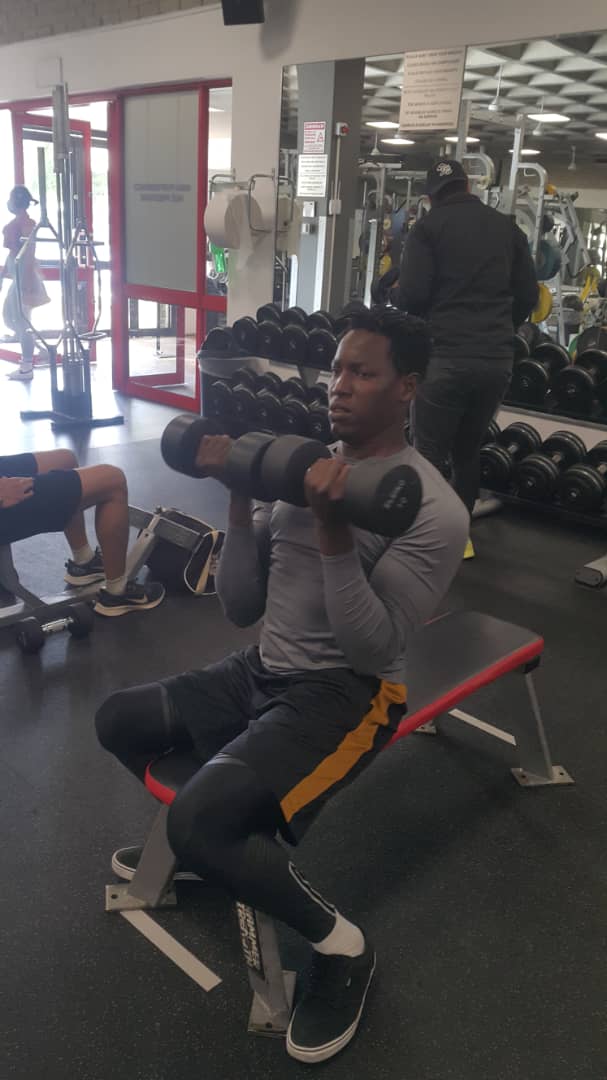
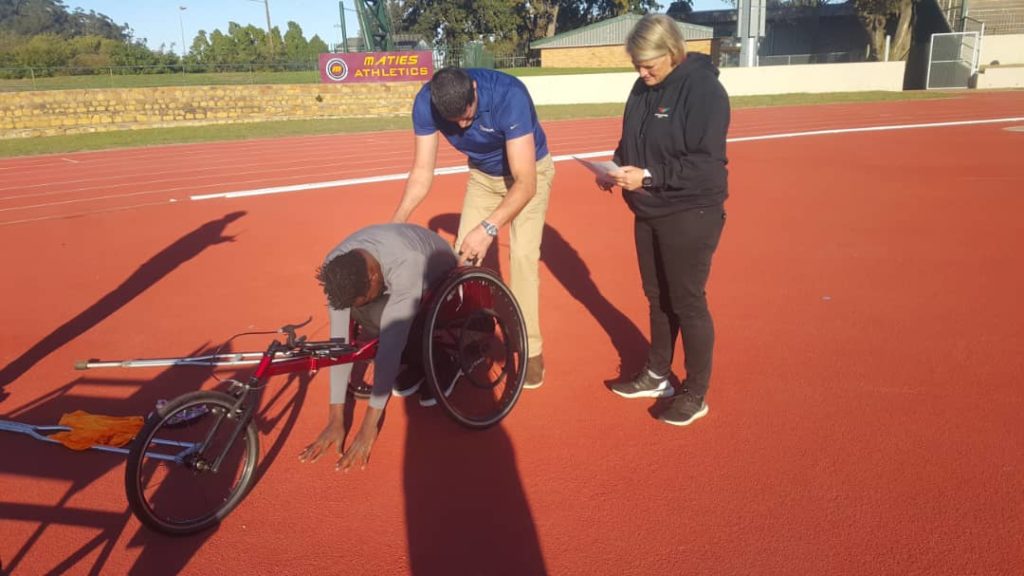
It is often joy when a new born baby arrives in a young couple’s hands and so was the birth of Lizy. Lamaro Elizabeth dropped into her family pretty, healthy and unblemished till her evil step-mother happened. In the absence of her mother sleeping as a toddler the immoral woman set ablaze the grass thatched hut she lay therein. Heaven was not yet ready to welcome baby Liz. She would be pulled out of the vicious inferno not scathe-free. She suffered 3rd degree burnt on her left hand damaging her fingers to a stub. There were second degree burn on her left side of face and head destroying her skin and left a black surface.
Her mother’s love never vanished. Living in impoverished one of the Internally Displaced Peoples (IDP) Camp settlement in the then war-torn Northern Uganda she managed to enroll in primary school. Due to lack of financial support towards education Liz dropped out of school and came to live in urban Gulu Town (now City) with her maternal aunt. Here she got involved in track and field running as T46 by classification in national challenged athletes annual tournaments in Uganda organized by Uganda Paralympic Committee (UPC). Liz is currently working on qualifying for Paris 2024 Paralympics.
Amputee Soccer was recently launched in greater Gulu and she already cemented her place as the female team short stopper. Outfielders may have two hands but only one foot. Goalies may have two legs, but only one hand. Her residual hand becomes a wild card. During her sporting activities, a non-formal vocational skills training opportunity project to train youths with disabilities presented itself and learnt sweater knitting. She continued and learnt tailoring as well. She did apprenticeship at her tutor’s establishment where she starting to earn some little income.
Another opportunity came after a year of her apprenticeship to study advanced sweater knitting and tailoring with design in Uganda’s Capital City Kampala. Her certification after this earned Liz employment opportunity by her former Learning centre Gulu Disabled Persons Union (GDPU) as a instructor/teacher school. Liz gets contract awards to supply school children sweaters from local schools in her City which contributes towards her gross income. Liz is 23 years still single and lives with her kind benevolent aunties.
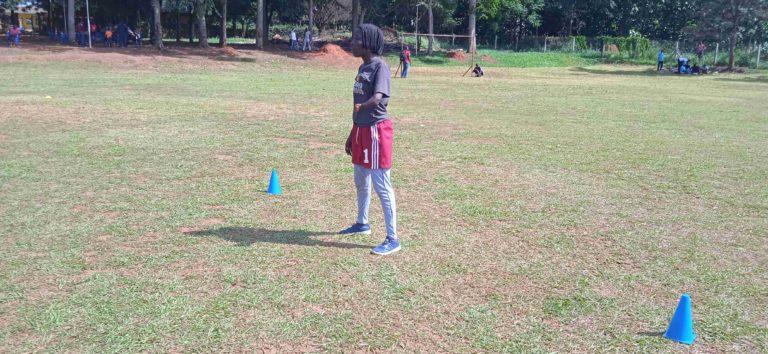
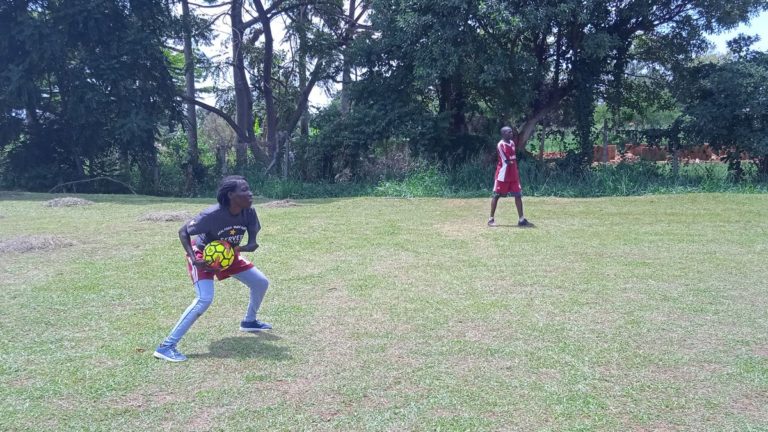
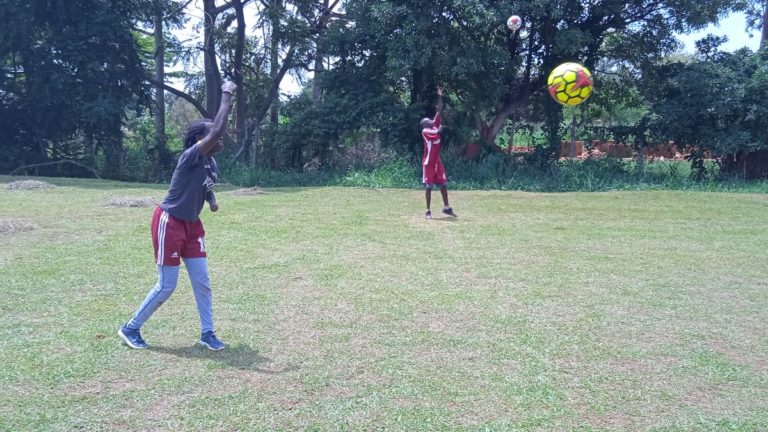

It is often joy when a new born baby arrives in a young couple’s hands and so was the birth of Lizy. Lamaro Elizabeth dropped into her family pretty, healthy and unblemished till her evil step-mother happened. In the absence of her mother sleeping as a toddler the immoral woman set ablaze the grass thatched hut she lay therein. Heaven was not yet ready to welcome baby Liz. She would be pulled out of the vicious inferno not scathe-free. She suffered 3rd degree burnt on her left hand damaging her fingers to a stub. There were second degree burn on her left side of face and head destroying her skin and left a black surface.
Her mother’s love never vanished. Living in impoverished one of the Internally Displaced Peoples (IDP) Camp settlement in the then war-torn Northern Uganda she managed to enroll in primary school. Due to lack of financial support towards education Liz dropped out of school and came to live in urban Gulu Town (now City) with her maternal aunt. Here she got involved in track and field running as T46 by classification in national challenged athletes annual tournaments in Uganda organized by Uganda Paralympic Committee (UPC). Liz is currently working on qualifying for Paris 2024 Paralympics.
Amputee Soccer was recently launched in greater Gulu and she already cemented her place as the female team short stopper. Outfielders may have two hands but only one foot. Goalies may have two legs, but only one hand. Her residual hand becomes a wild card. During her sporting activities, a non-formal vocational skills training opportunity project to train youths with disabilities presented itself and learnt sweater knitting. She continued and learnt tailoring as well. She did apprenticeship at her tutor’s establishment where she starting to earn some little income.
Another opportunity came after a year of her apprenticeship to study advanced sweater knitting and tailoring with design in Uganda’s Capital City Kampala. Her certification after this earned Liz employment opportunity by her former Learning centre Gulu Disabled Persons Union (GDPU) as a instructor/teacher school. Liz gets contract awards to supply school children sweaters from local schools in her City which contributes towards her gross income. Liz is 23 years still single and lives with her kind benevolent aunties.
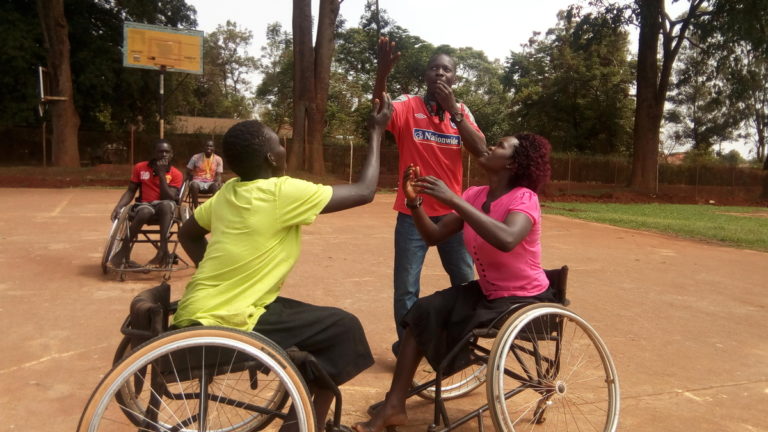
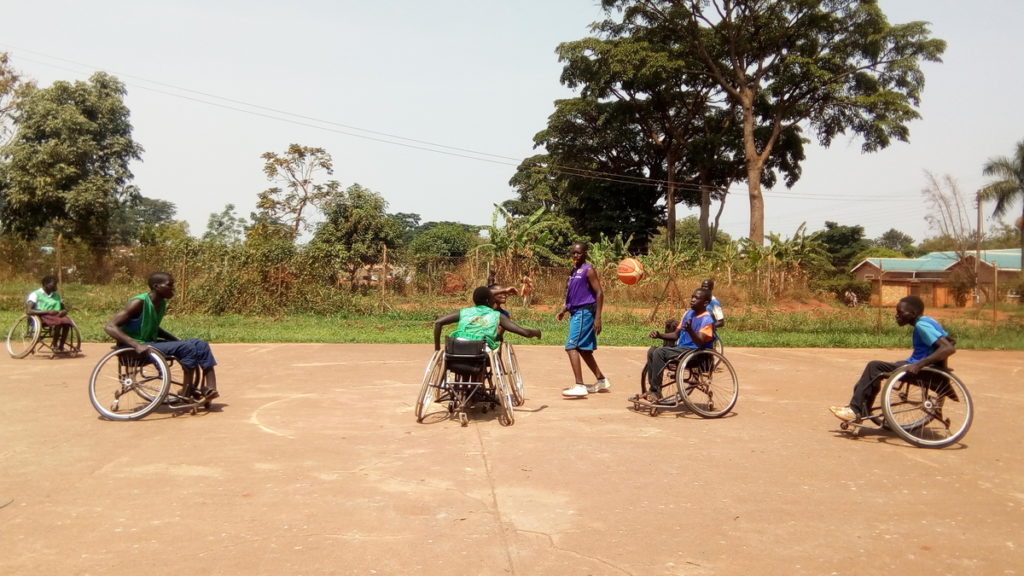
Uganda Wheelchair Basketball Association in association with the Uganda Paralympic Committee (UPC) have been organizing Annual National Disability Sports Tournament attracting over 200 athletes with disabilities since 2014. Hosting venues has been rotational with different disability and adaptive sports disciplines contested by athletes across all regions of Uganda.
This event was aimed at creating awareness for persons with disabilities and also intended to showcase the various disciplines that the disables play, promote their talent and bring together partners and stakeholders on board to support the disabled sports.” Both elite and non-elite participants from across the region competed in different disciplines which included athletics, goalball, wheelchair basketball, sit ball, sitting volleyball, table tennis, boccia, chess, and amputee soccer.
Wheelchair Basketball had three matches played on the first day and three more league matches were played on the second day in a round robin format where team with maximum takes it all at Kyambogo University Court. Hosts Kampala pipped stiffest nemesis Gulu to the prestigious prize. In total there were 6 matches played and 172 baskets scored during the tournament from 14 different players. Statistically, only 3 baskets were scored from the free throw, one player made a three pointer and the rest of the scores were field scores. Gulu Wheelchair Basketball Club continue to use sports for rehabilitation of amputees survivors of explosive ordnance in the 20 year northern war as new amputees from other types of trauma.
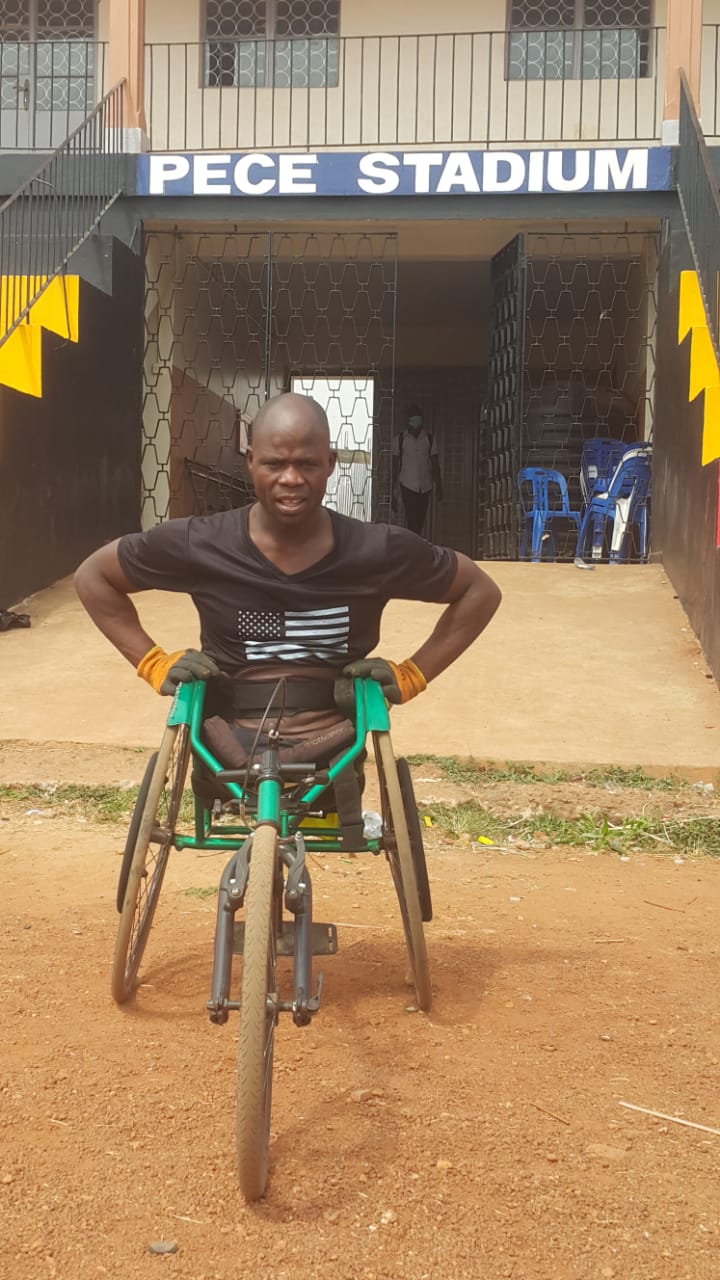
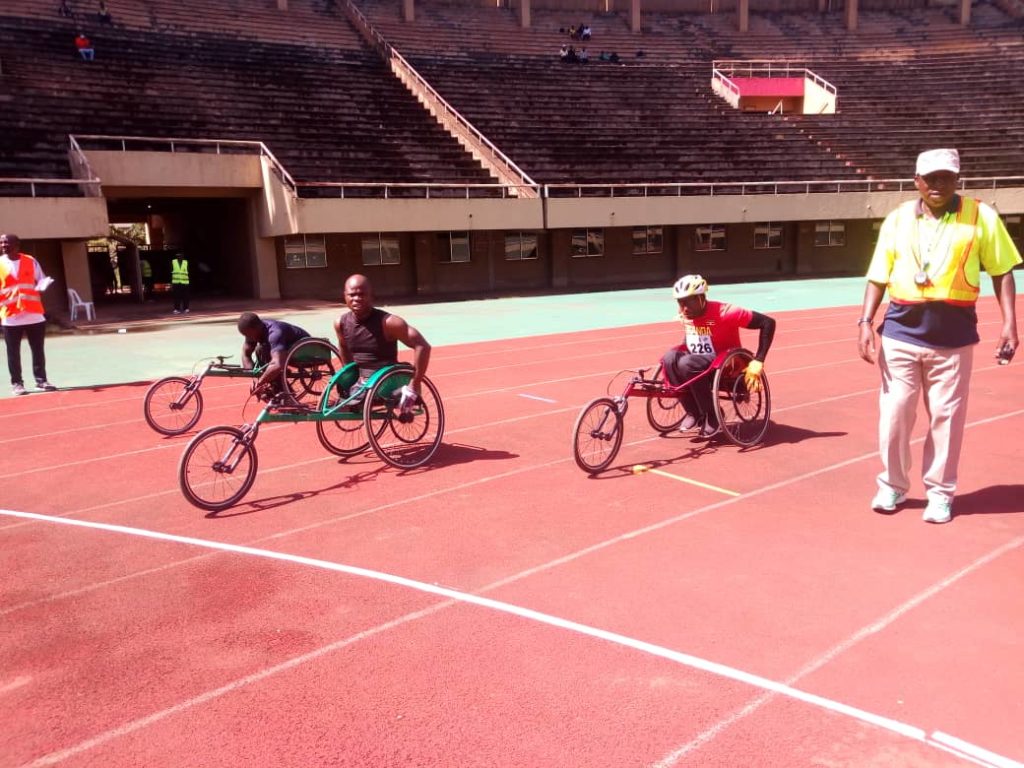
Born December 10, 1990, Charles suffered a life-changing injury in his infant 8 years after being blown by foot landmine during the war ravaged Northern Uganda, no one would have blamed him if he decided life as he knew it was over. Facing his future as a double amputee with no limbs, he could have easily viewed the outcome as the end rather than a beginning. Instead, Okwonga rehabilitated and tried live trying out everything his hands could afford him including work and plays as he grew up. Okwonga went on to a College Diploma in Counselling and Guidance, compete and win 100m as a wheelchair athlete on a National scale on his debut, positively influence hundreds of disabled youth and adults through motivational speaking programs over the last 2 years.
As a child studying in a mainstream school Charles played with other school mates but never did get a chance to play any disability sport. He saw one day people with disabilities playing Wheelchair Basketball at Disability organisation in Gulu but had to wait read from the Newspapers about wheelchair athletics. Now Charles has a sport he calls his own and does not have to be discriminated by no disabled persons when playing these disability sports. After a few years of play Charles was trained as a coach for wheelchair basketball in Uganda before travelling to Germany for more sports coaching courtesy of … German- African Sports Camp-Berlin September 12-21, 2014. He returned to home with a gift of a brand new mobility wheelchair thanks to the coaches of COMENGA.
Charles used a wheelchair basketball adapted sports chair to compete in the 2015 MTN Kampala 10km Marathon finishing third place. Charles skipped the 2016 marathon edition due to absence of a better competing sports wheelchair. He tried modifying one of his old mobility chairs into a tricycle but not quite effective but earned him fourth place after crashing 500m to the finishing line. Charles aspires to see himself as a noble citizen who can contribute to national development of his country when given a chance unlike before when disability meant absolute worthlessness. Charles’ goal is to work hard in training so that he represents his country at least in one of the sports disciplines wheelchair basketball and wheelchair race.
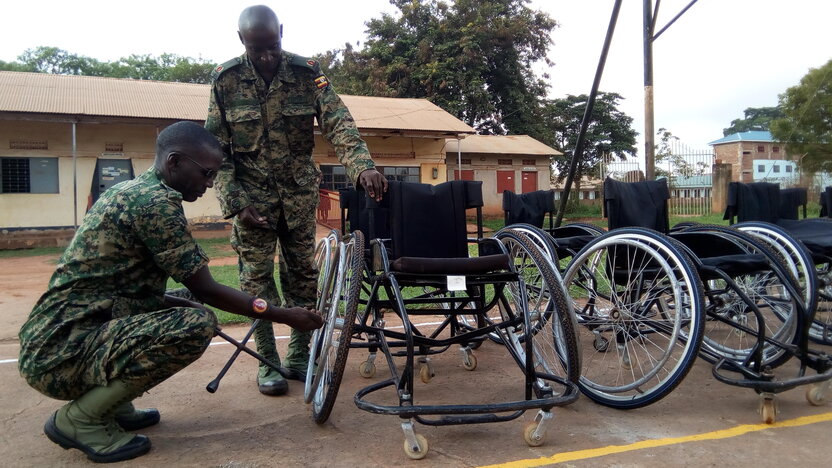
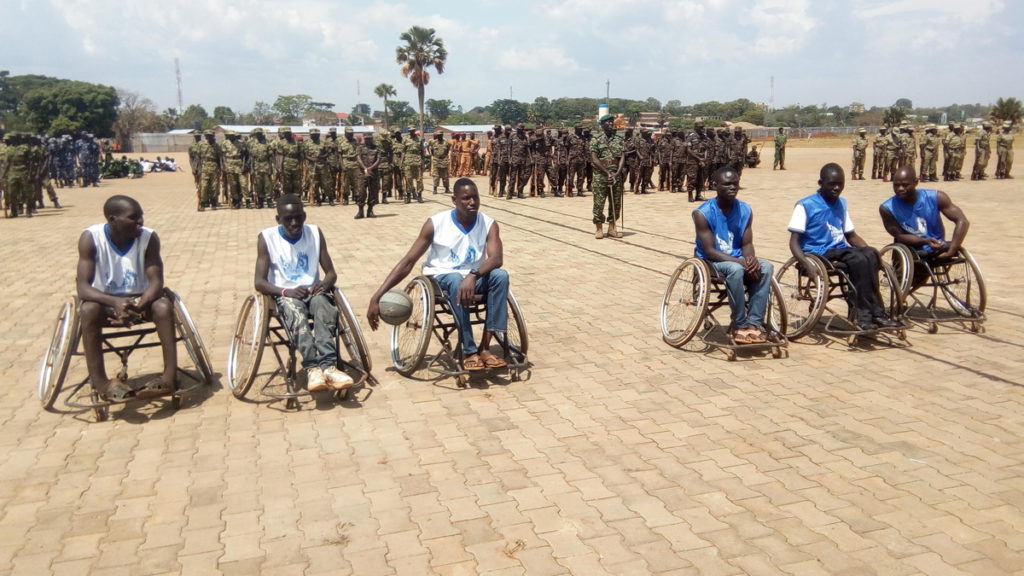
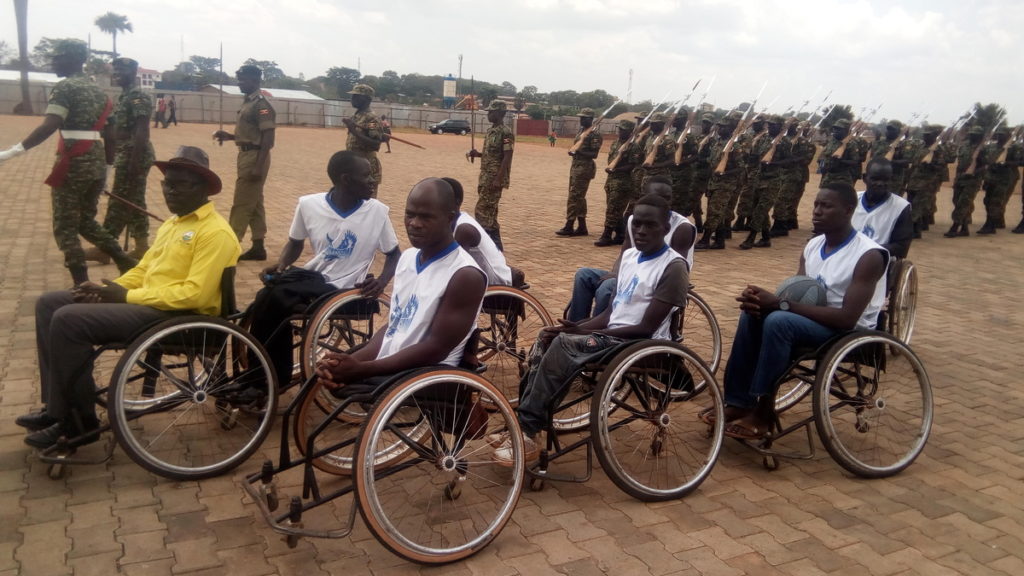
Gulu Wheelchair Basketball Club through (Uganda Wheelchair basketball Association ) UWBA received €3500 from German former Olympians Mr Dieter Schneider (1984, 1988, Fencing) and Mr Thomas LURZ (12 Times World Titles Open water swimming and 2 times Olympic Silver) to produce 10 sets of locally modified sports wheelchair in Uganda. The design of our sports wheelchair product was nearly flawless, but the manufacturing methods used were time-consuming. Also, the machined components were not perfectly precise or accurate, but this could be corrected with repetition. Excluding significant losses due to a sum of small inaccuracies or unforeseen design flaws in the modification, our wheelchair should function appropriately on both indoor and outdoor court.
Chieftaincy Mubende Rehabilitation Centre (CMRC) attended both Gulu 2012 and Lugogo 2013 Trainer of Trainers (TOTs) before UWBA conducting another wheelchair Basketball coaching clinic with a curriculum consisting of theoretical and practical instructions and playing time with an emphasis on the teaching of wheelchair basketball game. The goal of the training was to maximize the use of wheelchair basketball activity as a para sport and social asset in order to enhance the promotion of sport and recreation for persons with disabilities in the Uganda Peoples Defense Forces Rehabilitation centre. After a little modification of with Aluminum forks to hold the castor wheels we donated the 10 Sports chairs wheelchairs locally modified to the Chieftaincy Mubende Rehabilitation Centre (CMRC) March 2018.
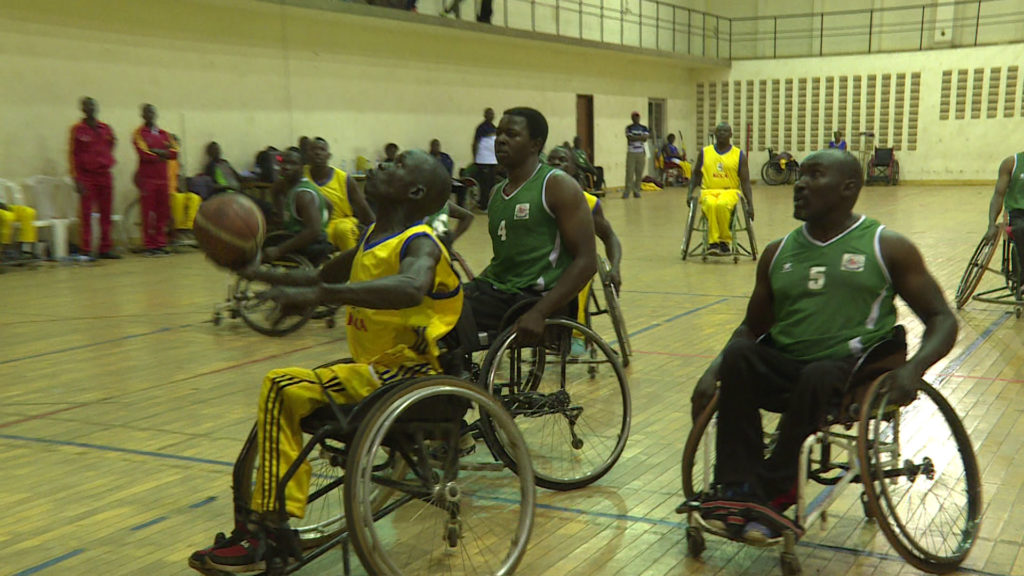
East Africa Wheelchair Basketball Championship...

The East Africa Wheelchair Basketball Championship held October 17-20, 2019 at Kasarani Stadium, Nairobi Kenya was a competitive tournament that brought together Tanzania, Uganda and host Kenya in an inaugural wheelchair Basketball contest. Rwanda, South Sudan, Burundi, Democratic Republic of Congo and Ethiopia were some of the other invited nations but did not turn up for the competitions.
Wheelchair Basketball had three (3) matches played on the first day of the fixture and three (3) more match played on the second day in a round robin format where the top two teams qualify for finals. Two (2) more matches featuring the ladies and men’s finals concluded the tournament.
Team Kenya Wheelchair Basketball won two matches and earned 4 points apiece in both Ladies and Men ‘s categories. Team Uganda Wheelchair Basketball won one, lost one match earning 3 points apiece, in both Ladies and Men‘s categories. Likewise, Team Tanzania Wheelchair Basketball lost both matches and settled for 2 points, in both Ladies and Men ‘s categories to settle bottom of the log. Overall there were eight (8) matches played. Team Uganda (MEN) having played three (3) scored a total of 105 baskets from 7 different players. Team Uganda (LADIES) having played three (3) scored a total of 34 baskets from 5 different players.
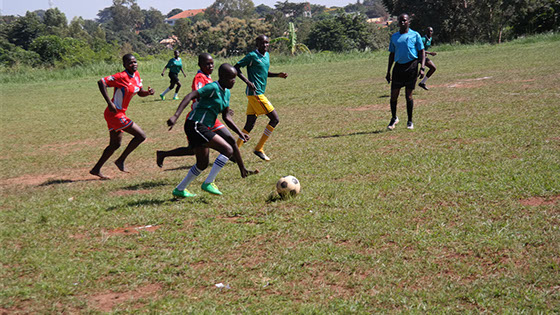

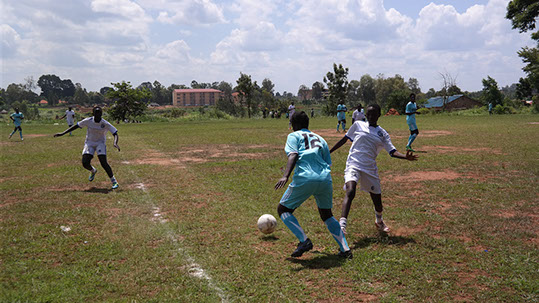
Our commitment to tackle discrimination through football’s inclusive power is based on the principle that the game, as the most popular sport in the world, belongs to us all and can propel social cohesion. We alongside like minded organizations’ combat all forms of discrimination, including racism, far-right nationalism, sexism, trans- and homophobia and discrimination against disabled people.
Fare a not-for-profit network constituted of formal and informal groups committed to tackle discrimination in football and further a positive change through the game became our sponsor 2018. Fare is a Corporate Social Responsibility partner of UEFA and a partner of FIFA on anti-discrimination issues. Every year, Fare runs campaigns addressing key issues and supports and funds events that promote the empowerment of women and ethnic minorities, tackle discrimination in and through football, celebrate diversity and social inclusion. We were part of Farenetwork project that involve playing activities alongside educational activities in 2018.
The FARE Activity event has been a success both in 2018 and #footballpeople football week October 2019. Not only did athletes have an opportunity for competition and socialization, but they also demonstrated significant off the field mental and behavioural cohesion with each other. Our relationship with the local schools is something we value very highly and we thank them for their ongoing support which has enabled us promote grassroot boys and girls football in our community. Children with hearing impairment had the pleasure of participating in the campaign representing persons with disabilities in the football event. 11 football matches were played attracting over 220 participants meeting the Fare minimum requirement of 10 playing sessions and a minimum of 200 participants as proposed. Each and every match result was reported in our local radio stations. One publication in local language was registered Wednesday July 11, 2018. Pictures featuring each and every fixture was shared in facebook or twitter June 8 2018 through July 10, 2018. A few corporate institutions, and the local government partnered with host organisation to successfully implement the Challenged Athletes Love Football project.
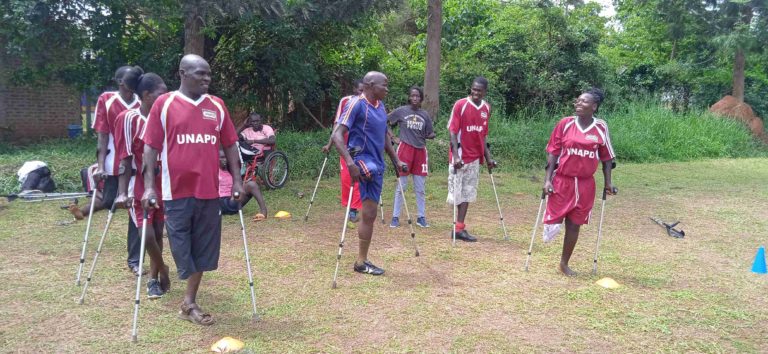
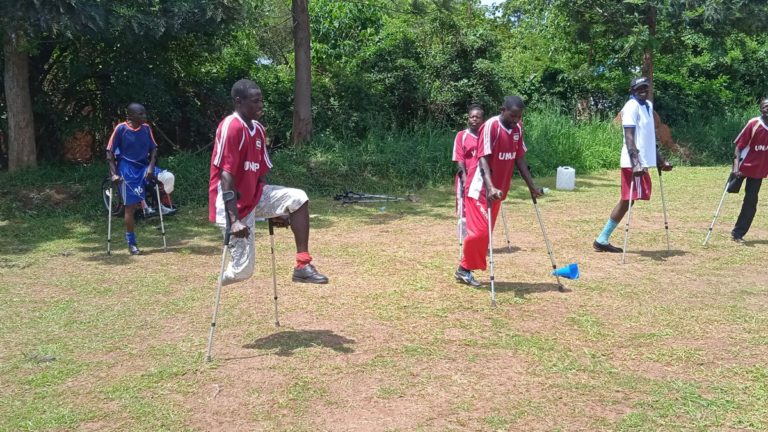
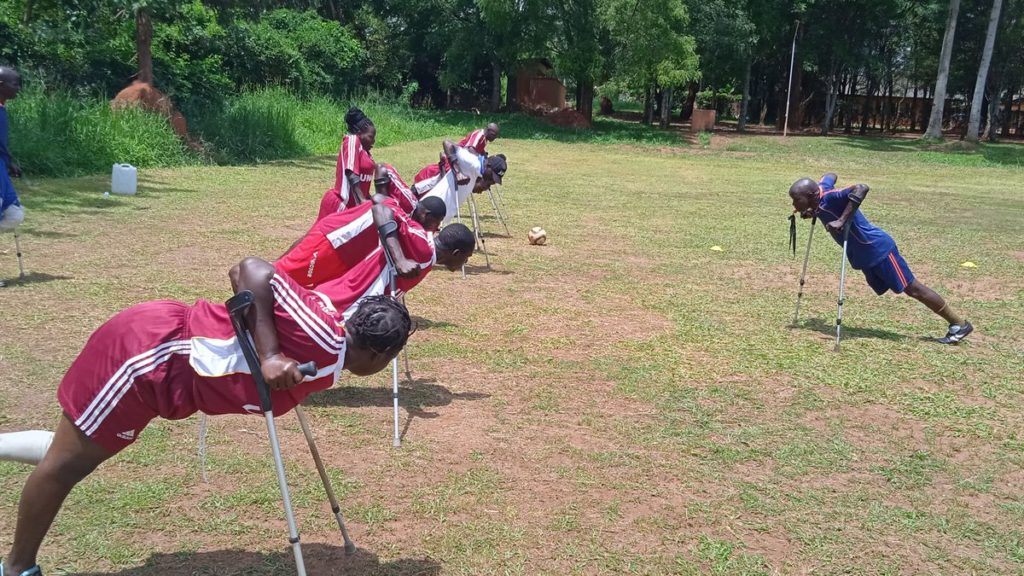
Amputee Soccer
There were two days non-residential Coach Training conducted by Coach Players of Chieftaincy Mubende Rehabilitation Centre (CMRC) from Uganda Peoples Defense Forces (UPDF) military rehabilitation residence. The Purpose of the Training was to introduce Amputee soccer as tool for mobilization and advocacy for the rights of persons with physical disabilities in Uganda.
We are grateful to Uganda National Action on Physical Disability (UNAPD) for support towards training of four (4) coaches and players with amputation during this period. Two (2) coaches from Gulu district and two (2) coaches from Gulu City attended the training. There were 11 participants in the training comprising of seven (7) males and four (4) females. The two (2) Trainers delivered both theoretical and practical sessions in Amputee soccer. Players with amputation were taught elbow crutches skills, warm up between cones, ball passing, ball control, and dribbling.
The trainers also shared with participants’ rules of the game. The day’s events consisted of three (3) hours each day for both theoretical and practical field work. The training ran from 10:00 p.m. till 1:00 p.m. Saturday through Sunday, May 21-22, 2022. Bottle water, refreshment, snacks and meals was served and a modest transport refund reimbursed to participants.
Training Objective
To equip the Coaches and players of amputation with relevant knowledge and skills required for training amputee soccer in Gulu City and Gulu district.
Objectives
- To provide coaching skills in Amputee soccer
- To teach the coaches session drills delivering methods for effective implementation of amputee soccer.
Outcomes
- 4 Coaches received two days (3-hours per day) training in coaching Amputee soccer.
- Coaches are equipped with skills in delivering and coaching Amputee soccer and ready to implement in their respective districts.
- Players with amputation and other physical disabilities received training in amputation soccer.
- Players with amputation and other physical disabilities received training jersey for amputation soccer donated by Victor.
- Gulu City receive 15 elbow crutches and a soccer ball apiece for establishment of their Amputee Soccer Team.
- Gulu district receive 15 elbow crutches and a soccer ball apiece for establishment of their Amputee Soccer Team
Recommendations
- Provision of additional soccer balls to the two (2) teams in order to facilitate effective implementation of practice session.
- Players with amputation and others with physical disabilities suffer from mobility challenges commuting from their homes to the proposed identified practice/training venue potentially centrally located.
- In line with that observation, we seek mutual partnership from well-wishers or any donor to consider providing modest travel funds towards our weekly training sessions.
Conclusion
Specific areas of concentration was done on fundamentals on elbow crutches skills, warm up between cones, ball passing, ball control, and dribbling. Emphasis was made on key points such as proper firm grip/grasp of the elbow crutches, balancing, hoping on one foot when turning, and concentration. Over the course of the Two (2) days coaches’ confidence grew along with their skills and overall appreciation of delivering Amputee Soccer coaching session. I believe that with regular practice with players with amputation and others with physical disabilities in identified project districts, and continual supervision of the Trainer/Facilitator, reaching the project target of 30 players is possible within the near foreseeable future.


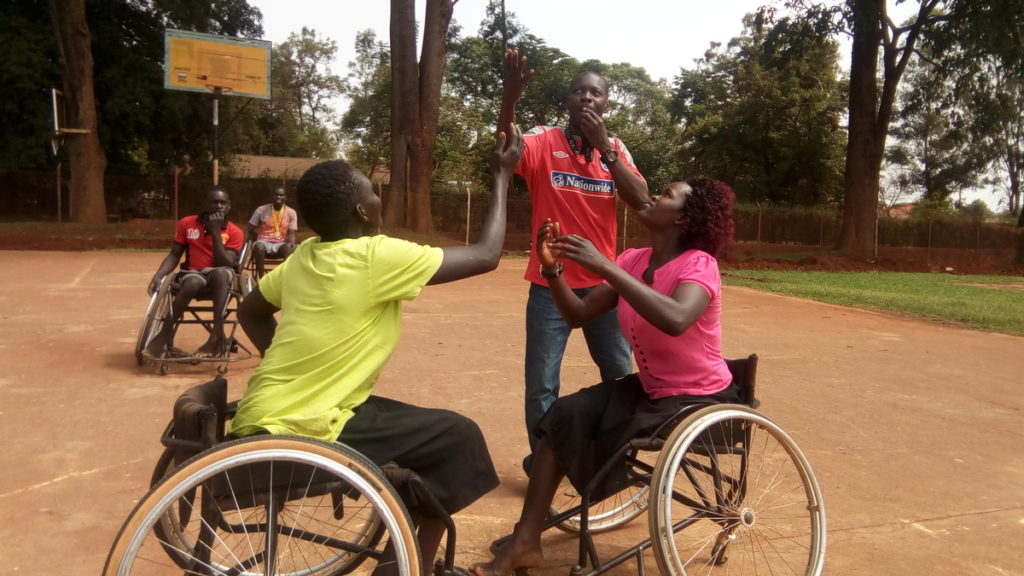
Acaye Paul is a Sports Coach, specializing in Basketball, football, Volleyball, Wheelchair Basketball, Sitting Volleyball and other Adaptive sports. Paul attended numerous trainings including coach educators trainings and acquired certificates that strengthened his skills in administration, Report writing, social work, coaching regular and Disability sport.
While coordinating activities of a newly formed sports organization Uganda International Sports Academy (UGISA) and later Gulu Athletic Sport Paul teamed with his colleague Basketball player Akena Dennis Gengomoi to help revamp wheelchair basketball providing coaching assistance, logistics, periodic service and repair of the wheelchairs. The fifteenth (15th ) year of any organisation is a significant milestone and all the more so when this moment in history is reached by a community disability organisation. Considering we were not a recipient of any major grant or donations 2007 through 2022 amidst the immense accolades won by the organisation. Volunteerism is and has been the pinnacle of his success story throughout.
Paul says he is humbled to witness silverwares and accolades won individually or as a team during our period of existence. National Wheelchair Basketball champions 2016 , 2017 and 2019. Members of our team were either winners, 1st runner up or 2nd runner in the MTN Kampala 10km Wheelchair Race since 2015 when we first participated. In addition to individual accolades our athletes won gold and prize money of Uganda Shillings one Million five hundred thousand shillings only (1,500,000/=) 2017, 1st Runner Up Silver medal and prize Uganda Shillings Eight hundred thousand shillings only (800,000/=) 2015 and 2017, or 2nd Runner Up Bronze medal and prize Uganda Shillings Five hundred thousand shillings only (500,000/=) 2015, 2016, 2017 and 2018.
One of his athletes, Ocira Richard (Racing Number: R32) became Uganda’s first ever Wheelchair Racer at the September 2018 Berlin Marathon where he finished 36th out of 41 using a 15kg Racing Wheelchair compared to most counterpart’s 3kg-5kg Aluminum Racing Wheelchairs. His debut competition was courtesy of Challenged Athletes Foundation (CAF) Travel/Competition grant of US $ 800 award. Richard’s time was 3 hours 3 minutes 13 seconds averaging 4 minutes 20 seconds per kilometer in the 42.2Km route. Richard brought pride to our Club, disability movement and helped raised Ugandan flag high.
Paul was Uganda’s coach at the inaugural East African Wheelchair Basketball Championship where both Female and Male Team Uganda finished
first runner up at the Kasarani Stadium, Nairobi November 2019.
Paul’s motivation doing this was to propagate sport as an aid to social change and physical adjustment contributing to the improved physical literacy of children and youth with various abilities and disabilities in and out of school in Uganda.
Paul’s team was equipping selected school with training and skills in implementing an enabling, free and safe environment for increased participation of Children and youth with disabilities and the promotion of their rights.
They ran an inclusive games for girls and boys [with & without disabilities] in and out of school equal opportunity Play for fun, learn life sports curriculum as advocates and change makers in community development.
The ultimate goal is to promote early involvement of children and youth with disabilities in equal opportunity participation, teach and sensitize them to make informed decisions on their rights, demand for and uptake of essential socioeconomic support services, provide them an enabling, free and safe environment to promote their human rights.
